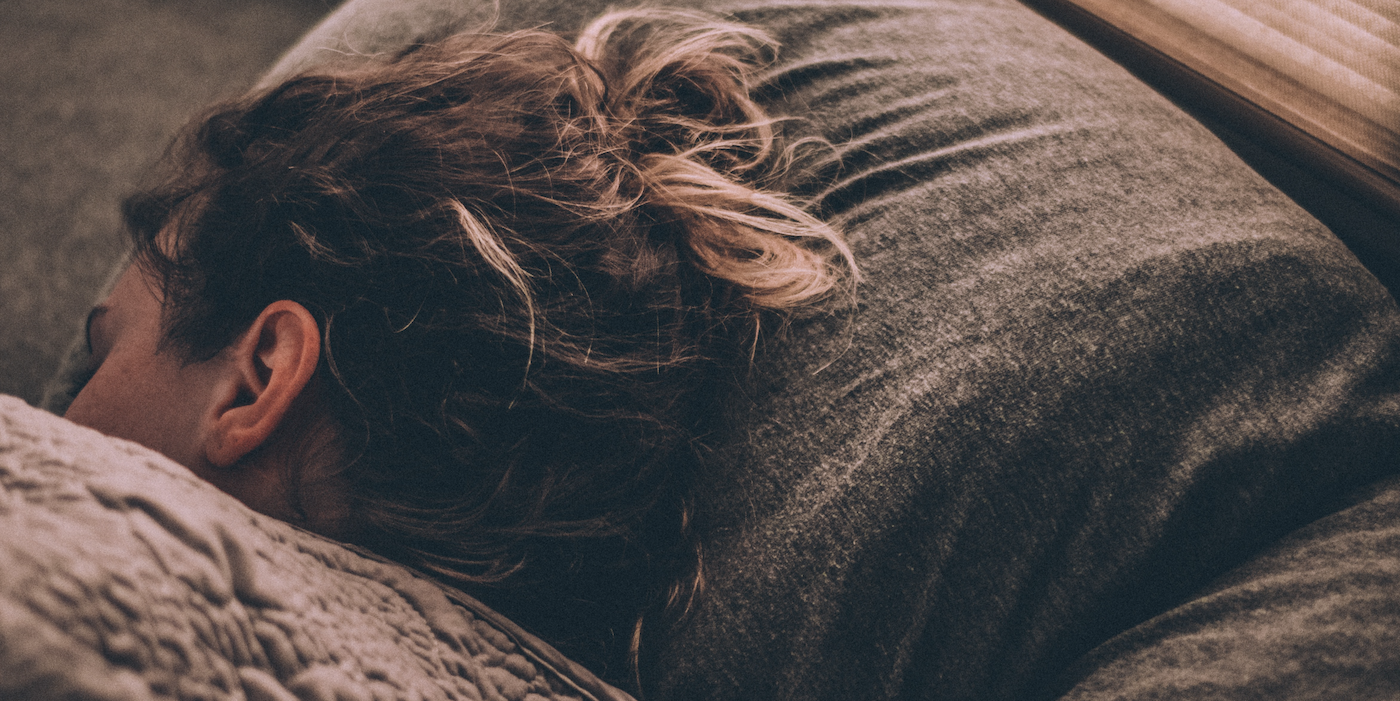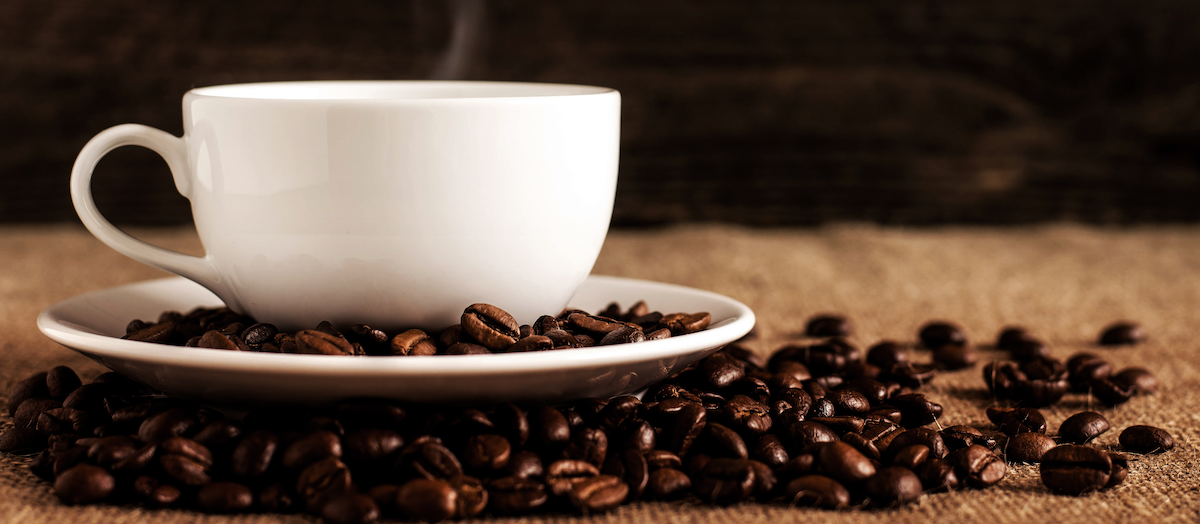Caffeine’s Effects on Sleep: The Good and the Bad
(Source)
Gerard Paul, Contributor
Do you drink coffee? I certainly do – and that's not an uncommon thing.
According to the Journal of Food and Chemical Toxicology, a full 85 percent of adults consume at least one caffeinated drink per day. And the old stalwart coffee leads the pack in terms of popularity.
Another shocking number for you? The American Sleep Apnea Association states that 70 percent of adults have some level of sleep disorder.
Between chronically insufficient sleep and the popularity of stimulant drink usage, you'd be entirely forgiven for thinking there's something there. Let's look at the links between sleep and caffeine – the good and the bad.
What is Caffeine?
To kick it off: what is caffeine?
Biologically speaking, caffeine is a stimulant that acts on the brain and central nervous system. In nature, it's a plant defense: caffeine is a natural pesticide that protects certain nuts, seeds, and berries from insect invasion.
You'll find it naturally in a variety of food items, including chocolate, tea, and coffee. Caffeine is also added to many beverages, including sodas and energy drinks.
Caffeine is a vasoconstrictor – it narrows your blood vessels. While it increases blood pressure and your heart rate, constricting your blood vessels also tend to help salve headaches and migraines. To that end, many migraine medicines combine a painkiller with caffeine.
Biological effects of caffeine
Caffeine most famously affects mental sharpness and energy. However, caffeine has complex effects, and the body is an even more complex machine.
Positive biological effects
Wondering what's really in your cup? These are some of the best known and well-publicized acute benefits of caffeine:
- Increased mental alertness
- Reduced drowsiness
- Increased mental focus
- Heightened mood
- Better short-term memory
- Boosted metabolism
- Decreased muscle fatigue
Negative biological effects
There's a flip side of the coin, however. For all of the positive effects, caffeine in excess (or caffeine in sensitive people) can cause these negative effects:
Agitation and anxiety
Restlessness
Heartburn and acid reflux
Diarrhea, nausea, and vomiting
Frequent urination
Importantly: insomnia and poor-quality sleep
Plus, caffeine has several well-documented adverse effects on pregnant and breastfeeding women.
(Source)
Sleep Effects of Caffeine
Caffeine is a naturally-occurring psychoactive drug. Don't be alarmed here. The word "psychoactive" merely means caffeine changes your mental state when you ingest it.
One way caffeine does this by blocking certain key receptor sites in the brain and central nervous system. Primarily, caffeine competes with adenosine, a neurotransmitter that induces fatigue.
By blocking adenosine, caffeine exerts its primary effects: namely, it keeps you awake, alert, and non-drowsy.
Alas, the same effects that are useful when getting work done can be a curse at bedtime. We'll get there – but first, let's talk about adenosine.
Why is adenosine important?
Adenosine is an essential part of ensuring the body receives sufficient quantities of sleep of adequate quality. Among many other things, adenosine also helps regulate the body's internal clock – that is, the body's natural sleep/wake cycle: its circadian rhythm.
Adenosine is one substance the body produces with somnogenic properties – especially during prolonged wakefulness. As the term suggests, somnogenic refers to inducing a state of sleep.
This is part of what signals the body about the onset of fatigue and the need to sleep. Adenosine also triggers a particular type of sleep called non-REM sleep (REM stands for "rapid eye movement").
Non-REM sleep is a phase of the sleep cycle where the brain is relatively quiet, which permits brain recovery and healing as needed.
Sleep Quality and Sleep Stages
The American Society for Clinical Pharmacology and Therapeutics found that the use of caffeine 30 minutes before sleep shifted the stages of sleep, with REM sleep taking place earlier than usual and deeper sleep taking place later than average.
As well, study participants had symptoms that mimicked insomnia after the use of caffeine before bedtime. It seems that caffeine's interactions with adenosine probably play some role in reducing sleep quality.
Caffeine and Sleep Latency
Sleep latency is the time it takes to fully transition from wakefulness to the earliest stage of REM sleep.
There is a known, research-confirmed link between caffeine and sleep latency. Just 200mg of caffeine an hour before bed – somewhere around the dosage in 1.5 - 2 cups of coffee – increased sleep latency by over 15 minutes on average.
What is the typical sleep latency for different ages?
In that same study, the typical sleep latency for participants aged 20-30 was 7.7 minutes, while participants aged 40-60 needed 9.4 minutes to fall asleep. Caffeine vastly increased the time necessary to fall asleep – upwards of tripling it in the younger participants.
Outside of caffeine's effects on the time it takes to fall asleep, sleep latency does increase as you get older.
And you know where I'm going with this: insomnia. One of the hallmarks of insomnia is increased sleep latency. For some people, insomnia might be a result of caffeine too close to bedtime.
Caffeine-induced sleep disorder
Let me also point out: caffeine can be physically addictive.
Further, the Diagnostic Standards Manual Version 5 (DSM-5) names four different psychiatric conditions linked to caffeine use:
caffeine intoxication
caffeine withdrawal
other caffeine-induced disorders (e.g., sleep, anxiety)
caffeine-related disorder not otherwise specified
It also lists caffeine as an addictive substance – but doesn't (yet?) pick a side on whether it is clinically significant. That's little comfort to you, though, if you're physically addicted – caffeine-linked disorders in sleep and anxiety can wreak havoc on a night of sleep.
Paradoxically, When Might Increase in Latency be Good?
I'd be remiss if I didn't mention that there are two sides to the coin when it comes to caffeine and sleep. Sometimes the reason you're drinking that coffee is to fight off the effects of sleepiness.
Take, for example, this study from the Annals of Internal Medicine: the use of caffeine before night driving supported better resistance to sleepiness behind the wheel. Extending the argument, shift workers, night shift workers, late-evening work hours, truck drivers, pilots, and other night workers may benefit from the use of caffeine when sleep would be dangerous – or fatal.
And, as you probably know – when you need to get some work done late at night, sometimes caffeine is a crutch you need.
Caffeine Affects Sleep Duration
Caffeine doesn't only affect sleep latency and quality – it also affects sleep duration. Sleep duration is what it sounds like: the total amount of time you spend asleep.
In the same sleep latency study, researches found 200mg of caffeine roughly an hour before bed also reduced total sleep duration by between 25 and 30 minutes.
What's the right amount of sleep?
The Sleep Health Journal published the results of a two-year research project to determine optimal sleep duration.
The amount of sleep they recommend decreases with age. Adults need between 7 and 9 hours, and older adults need between 7 and 8 hours.
And how are we doing? It's not great – the American Sleep Apnea Association reports that 70 percent of adults are chronically sleep-deprived at least once per week, and 11 percent get insufficient sleep every night.
Again, that's not great.
The Bottom of the Cup: Be Careful When You Drink
The bottom line: some of society's chronic sleep problems are undoubtedly linked to our collective addiction to caffeine. It's probably not the only cause – many of us sit down and stare at artificial lights for 8+ hours a day, too, for example (yes – guilty).
But with caffeine, there is a bit more you can do. According to the Journal of Clinical Sleep Medicine, it is best to avoid consuming any caffeine starting six hours before the desired bedtime to get the best and most restorative sleep.
For your best sleep, maybe start by turning that evening coffee into an evening water.
Gerard Paul writes about food & drink at ManyEats. He's often found with a cup of coffee too close to bedtime – and wrote this post after drinking quite a bit of caffeine.


